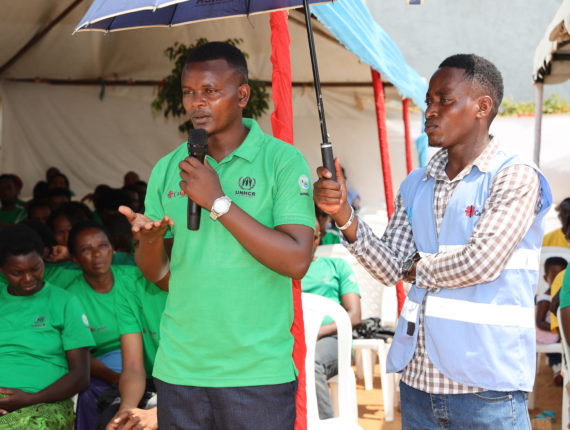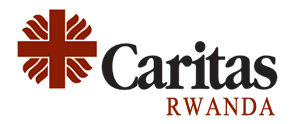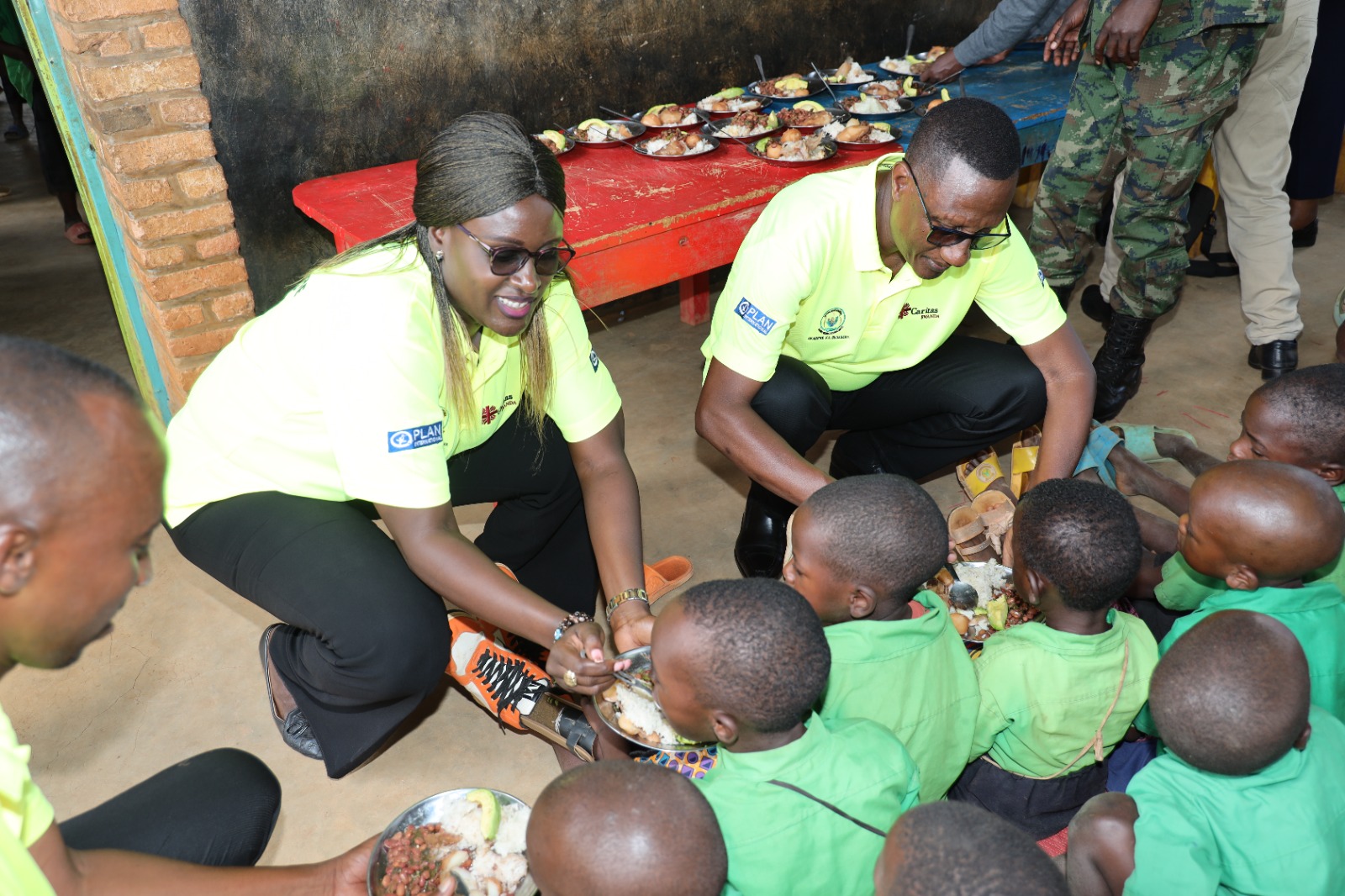On June 5, 2024, 48 Savings and Internal Lending Community groups (SILC groups), consisting of 944 participants of the UNHCR-funded Graduation Project, shared Rwf 285,519,800 after a year of saving. The sum includes 225,149,230 Rwf in savings and 60,370,570 Rwf in interest. These SILC groups are now transitioning into cooperatives to become more empowered and self-reliant.
One of the Graduation Project participants, Sosthène Azabe, testified that his family lived in extreme poverty prior to being identified by this project, so that there was a time when he left the camp to seek for work as a mason’s assistant in Bugesera district, where he spent two months and lost 10 kilograms. However, his life took a turn for the better once he received the training and financial support from the Graduation Project. “Thus, I invested the received cash grant of 800,000 Rwf in selling honey, sesame, olive oil, etc. I buy them in Kigali to resell them in the camp. Recently, we closed the savings year, and I found that I had saved up to 600,000 Rwf, which generated a profit of Rwf 185,000”, said Sosthène.

As for Solange Umukiza, one of the project participants from the Mahama camp host community, stated that even though she studied veterinary in high school, she remained jobless for a long time and when she got a job the salary was insufficient to provide for her family. After receiving the cash grant from the Graduation Project, Solange opened a veterinary pharmacy. For this year, she saved 655,500 Rwf and her pharmacy business is flourishing. Together with her other 19 SILC group members have created a maize farming cooperative and have already deposited 510,000 Rwf on their bank account.
During the share out event, the 48 SILC groups’ members were reminded that the graduation model followed by the Graduation Project has a duration of three years, during which the project trains the participant, provides him/her cash grant and continues to advise him/her on income-generating activity as well as SILC groups activities. “After three years you are no longer begging. You don’t ever wonder how you are going to survive? You don’t you say what else are they going to give me? Instead, in three years we look forward for an employer. Who is self-reliant and hires others”, said Samuel Bigirimana, the UNHCR Community Protection Associate in Mahama refugee camp.
Janvière Mukandayisenga, the Vice Mayor of Kirehe District in charge of Social Affairs, appreciated Caritas Rwanda for providing both the financial support and creating the saving groups. “We thank Caritas Rwanda through its Graduation Project. We appreciate you for providing the financial support, but also helping the project participants to create the Saving and Internal Lending Community Groups. That is why they are successful. If people didn’t form saving groups, we wouldn’t celebrate these achievements”, said the Vice Mayor.

In his closing speech, Father Emmanuel Nteziryayo, the Kiyanzi parish priest, asked everyone to work hard to develop economically, but not to forget God. “The two must go hand in hand. Saint Benedict, the patriarch of the monks, used to tell them: pray and work, because God must be put first in everything you do”, stressed Father Emmanuel Nteziryayo.
The SILC group that saved the most is Abadahigwa Saruhembe, who shared 11,64,800 Rwf. This group is made up of Rwandans, members of the host community in Mahama camp. The first SILC group in Mahama camp is Ejoheza Mahama V15, and it shared 8,443,000 Rwf. The group member who saved the most is Etane Jean Bosco (Rwandan), who saved 1,242,250 Rwf within one year and his fruit selling business is also flourishing. The smallest savings for this year was Rwf 180,000.
This is the second year that the SILC groups assisted by the Graduation Project in Mahama camp and its host community have shared their savings. Some are in their second year of saving, while for others it is the first year. The savings made during two years are 395,000,000 Rwf.
Among the 944 members of the 48 groups, there are 669 Burundian and Congolese refugees (regrouped into 36 groups) and 287 Rwandan members of the host community (12 groups).








